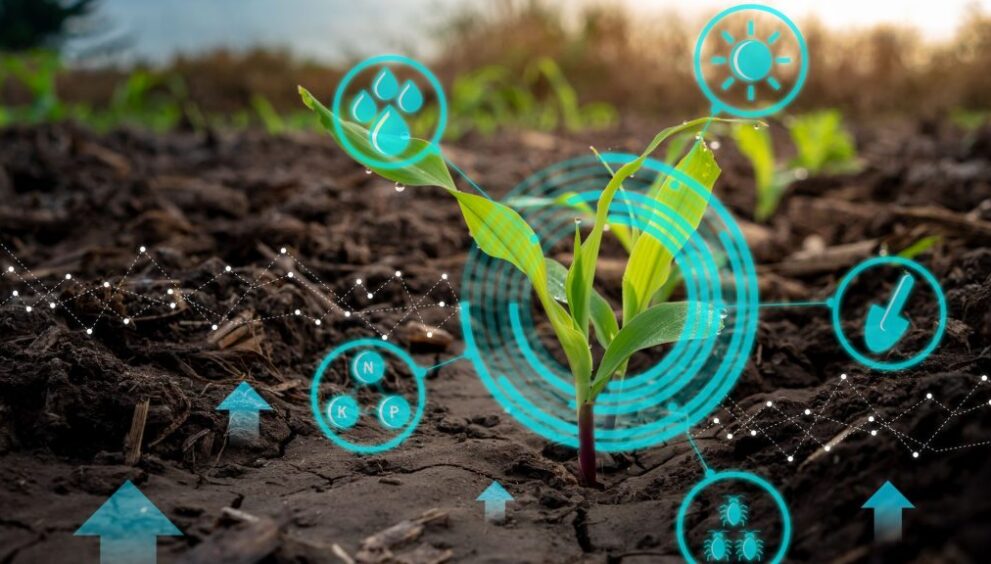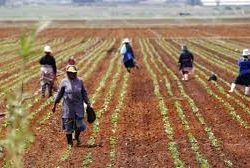Africa’s fertile lands, ripe with potential to feed nations and fuel economies, are finding a new lifeline in the digital age. While the agricultural sector remains the sturdy heartbeat of the continent, providing livelihoods for millions and bolstering national coffers, a chronic lack of financing has long stunted its growth. Now, a surge of innovative partnerships and agile agri-fintech solutions are stepping into this breach, promising to unlock the dormant power within Africa’s fields.
“This financing gap acts like a shackle on agribusinesses, preventing them from embracing innovation and ultimately holding back the continent’s broader economic ascent,” asserts Jérôme van Innis, the sharp mind behind Pumpkn.io, an agri-fintech platform dedicated to forging fresh capital pathways for farmers and agricultural enterprises.
Despite Africa’s role as a crucial breadbasket for global players like the EU and the United States – with South Africa alone celebrating record agricultural exports last year – its true capacity remains tantalisingly out of reach. Van Innis believes that access to the right financial tools is the crucial missing ingredient needed to unleash Africa’s full agricultural might.
However, the landscape isn’t entirely barren. A compelling narrative is unfolding in the realm of intra-African trade, where processed agricultural goods saw a remarkable 46.3% surge between 2019 and 2021. This upward trajectory, further propelled by the ambitious African Continental Free Trade Agreement (AfCFTA), paints an exciting picture for the future of African agriculture. By dismantling trade barriers and forging stronger connections between markets across the continent, the AfCFTA aims to cultivate fertile ground for agricultural value chains to flourish.

Free Trade Dreams Grapple with Financial Realities
The African Union’s recent reaffirmation of its bold vision for the AfCFTA – aiming to establish the world’s largest free trade area since the inception of the World Trade Organisation, backed by a formidable 1.2 billion-strong population – underscores the continent’s ambition. Yet, for these aspirations to truly take root and bear fruit, significant hurdles must be overcome, with financing standing out as a particularly thorny challenge.
The perception of risk looms large over agricultural SMEs, casting a shadow of doubt in the eyes of traditional lenders. Fluctuating commodity prices, the unpredictable dance of weather patterns, and the often-limited access to formal documentation all contribute to this cautious outlook. The remoteness of many rural agricultural operations further complicates matters, making it both costly and logistically demanding for lenders to reach these vital businesses.
“The conventional financial world often views agri-SMEs as high-stakes borrowers,” explains Van Innis, highlighting the systemic challenges faced by these crucial players.
The consequence, Van Innis points out, disproportionately affects those who can least afford it – the small and medium-sized agricultural enterprises that form the bedrock of Africa’s food systems but find themselves locked out of the very credit they need to scale and thrive.
Agri-Fintech Steps into the Breach
Responding to this critical gap, a dynamic wave of agri-fintech platforms is emerging, ready to fill the void left by traditional financial institutions. These tech-driven solutions are harnessing the power of mobile technology, alternative data streams, and collaborative partnership models to mitigate the perceived risks associated with lending to agri-SMEs.
They are not just making financing more accessible; they are tailoring it to the unique rhythms and realities of farming businesses, making it more affordable and relevant.
“Technology empowers us to gain a more nuanced understanding of risk and to design financing models that are both sustainable and truly farmer-centric,” says Van Innis. Instead of solely relying on conventional paperwork or land titles, platforms like Pumpkn.io are leveraging production data, insights from satellite imagery, and transaction histories to make informed lending decisions.
Furthermore, the rise of strategic partnerships is proving to be a game-changer. Rather than operating in isolation, agri-fintechs are increasingly forging alliances with agribusinesses, input suppliers, off-takers, and insurance providers. These collaborative ecosystems provide a broader support network around the farmer, making financing a more secure proposition for lenders and a more effective catalyst for growth for borrowers.
Van Innis firmly believes that these interconnected partnerships, rather than isolated initiatives, will shape Africa’s agricultural financing future. “It’s about cultivating ecosystems where every player—from the farmers in the fields to the financiers in the cities—works in concert to create shared prosperity,” he emphasises.
As Africa embarks on its journey to transform its agricultural sector through the dual forces of free trade and technological innovation, unlocking the flow of capital to agri-SMEs will be paramount. Without it, the continent risks leaving its most powerful economic engine empty.




